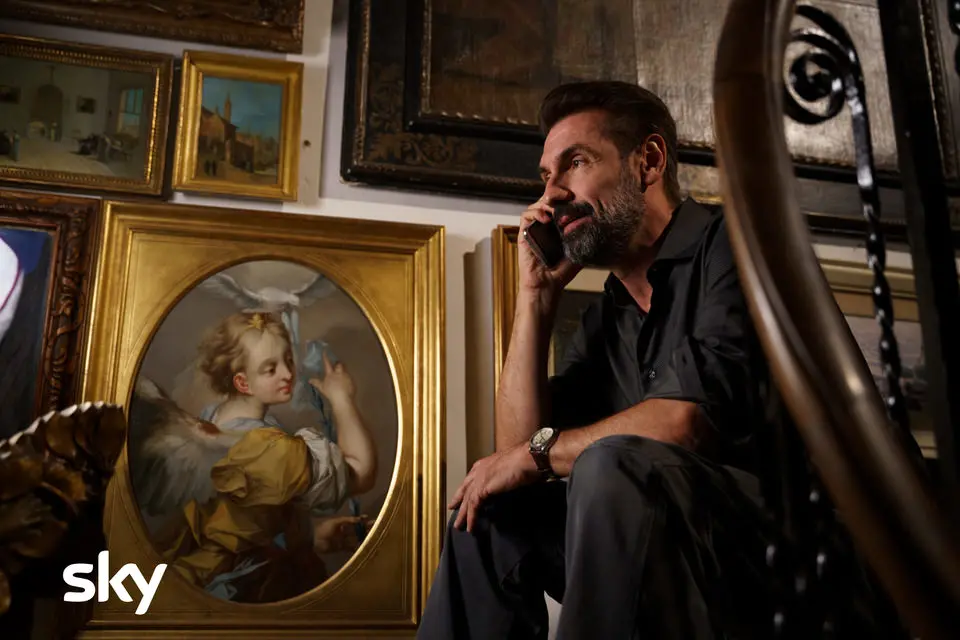
We use cookies
We use cookies and other tracking technologies to improve your browsing experience on our website, to show you personalized content and targeted ads, to analyze our website traffic, and to understand where our visitors are coming from.

In Lei mi parla ancora, based on the autobiography by Giuseppe Sgarbi, Pupi Avati tells the universal story of a love that a promise, memory and writing make immortal. On the Po Delta, in the Bassa Padana, a land of the soul, Nino and Caterina have loved each other for 65 years. Nino Sgarbi is from Stienta, in the region of Veneto, Caterina Cavallini from Santa Maria Codifiume di Argenta in the region of Emilia Romagna. When Amicangelo accepts the proposal to record and write their story while sitting at a table of a bar in piazza del Popolo in Rome, he has no idea what awaits him as he gets off the train that delivers him to a snowy station in Ferrara from Rome’s Termini station. The Sgarbi’s house is located in Ro Ferrarese, a hamlet of Riva del Po, and scenes showing its exteriors and interiors with rooms stuffed with pieces of art are alternated with Nino’s flashbacks, played as a young man by Lino Musella and in old age by Renato Pozzetto.
Several glimpses of the monuments and places in the historical centre of Ferrara appear discreetly including largo Castello, the Bagni Ducali, parco del Montagnone, corso Porta Reno; piazzetta San Nicolò is the location for a summer outdoor cinema from 70 years ago; while via Giuoco del Pallone is characterised by the porticoes of the Cavallini-Sgarbi house at number 31, where Ariosto wrote the first verses of Orlando Furioso, and the Minerbi-Del Sale house at number n.15, where Rina (Isabella Ragonese), in her wedding gown, is almost run over by an Alfa Romeo 1900.
The growing relationship and early marriage of the couple are shown against a backdrop of Bondeno, the river settings of the Destra Po and Consandolo, hamlet of Argenta, where there is a waltz scene in a room decorated in 1950’s style: their wedding takes place at the Church dell’Assunzione della Beata Vergine in the hamlet of Guarda Ferrarese in Riva del Po. The hospital scenes were shot at the Casa della Salute in Copparo. In addition, some interiors were built at Cinecittà Studios.
In Lei mi parla ancora, based on the autobiography by Giuseppe Sgarbi, Pupi Avati tells the universal story of a love that a promise, memory and writing make immortal. On the Po Delta, in the Bassa Padana, a land of the soul, Nino and Caterina have loved each other for 65 years. Nino Sgarbi is from Stienta, in the region of Veneto, Caterina Cavallini from Santa Maria Codifiume di Argenta in the region of Emilia Romagna. When Amicangelo accepts the proposal to record and write their story while sitting at a table of a bar in piazza del Popolo in Rome, he has no idea what awaits him as he gets off the train that delivers him to a snowy station in Ferrara from Rome’s Termini station. The Sgarbi’s house is located in Ro Ferrarese, a hamlet of Riva del Po, and scenes showing its exteriors and interiors with rooms stuffed with pieces of art are alternated with Nino’s flashbacks, played as a young man by Lino Musella and in old age by Renato Pozzetto.
Several glimpses of the monuments and places in the historical centre of Ferrara appear discreetly including largo Castello, the Bagni Ducali, parco del Montagnone, corso Porta Reno; piazzetta San Nicolò is the location for a summer outdoor cinema from 70 years ago; while via Giuoco del Pallone is characterised by the porticoes of the Cavallini-Sgarbi house at number 31, where Ariosto wrote the first verses of Orlando Furioso, and the Minerbi-Del Sale house at number n.15, where Rina (Isabella Ragonese), in her wedding gown, is almost run over by an Alfa Romeo 1900.
The growing relationship and early marriage of the couple are shown against a backdrop of Bondeno, the river settings of the Destra Po and Consandolo, hamlet of Argenta, where there is a waltz scene in a room decorated in 1950’s style: their wedding takes place at the Church dell’Assunzione della Beata Vergine in the hamlet of Guarda Ferrarese in Riva del Po. The hospital scenes were shot at the Casa della Salute in Copparo. In addition, some interiors were built at Cinecittà Studios.

Nino and Caterina have been married for 65 years and love each other deeply. To help Nino recover from Caterina’s death, their daughter hires Amicangelo, an editor with aspirations to be a novelist, to write a book about their love based on her father’s memories.